
OR
Republica Morning Brief: Oct 9
Published On: October 9, 2020 06:00 AM NPT By: Republica | @RepublicaNepal
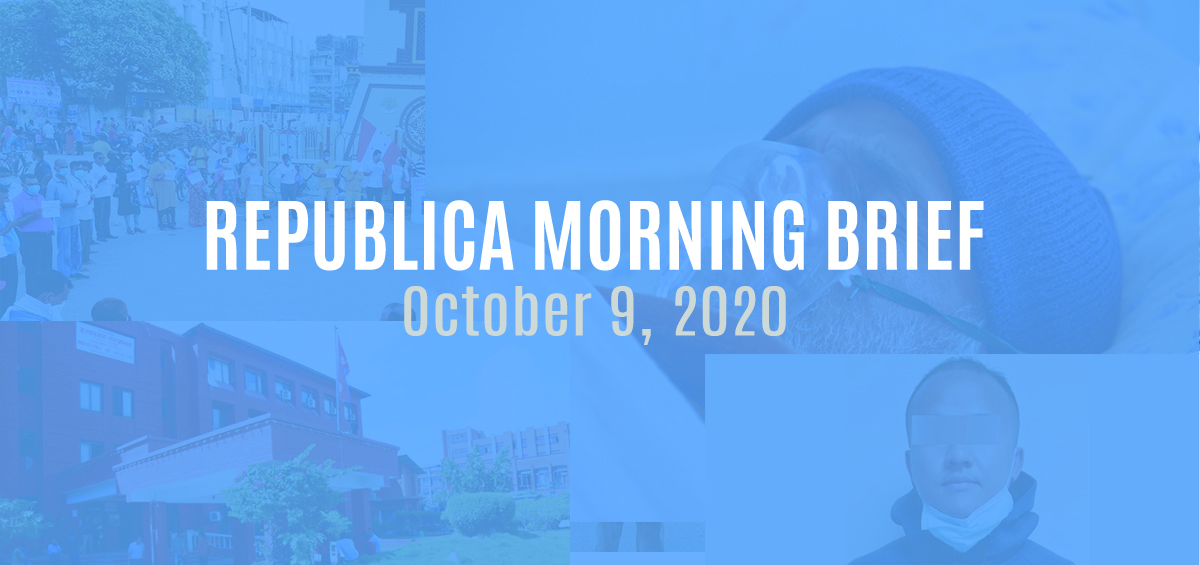
The Kathmandu Valley witnessed a record high of 2,540 new cases of COVID-19 in the past 24 hours, taking the valley’s COVID-19 tally to 36,089. Of the 4,364 new cases recorded across the country, 2,540 cases were detected in the Valley alone. According to the latest data from the Ministry of Health and Population (MoHP), 2,085 new cases in Kathmandu, 135 in Bhaktapur and 320 in Lalitpur were detected on Thursday. Similarly, five more people succumbed to COVID-19 within the Valley in the past 24 hours. With this, the Valley’s death toll has reached 181.
Nepal has recorded the highest single-day spike of the novel coronavirus disease (COVID-19) cases in the past 24 hours, reported the Ministry of Health and Population (MoHP). As many as 4,364 more people tested positive for this viral infection, the highest number in a day since the country reported the first case on January 23 earlier this year. With this, the total number of COVID-19 cases in the country is inching closer to the 100,000 mark, just short of 1,383 cases. Of the newly-confirmed cases, Kathmandu district witnessed 2,085 while the two other districts in the Valley are among the districts with a high number of cases confirmed today.
In a bid to curb further spread of novel coronavirus disease (COVID-19), the government has urged all people across the country to perform only routine rituals at temples during the upcoming Dashain festival. Spokesperson for the Ministry of Health and Population (MoHP), Dr Jageshwar Gautam said the request has been made to help avoid crowds at temples and other holy places during one of the biggest festivals of the Hindu community. “Higher level of precaution is required at the time of festivals when people from different places of the country gather in the villages and towns,” said Dr Gautam during a virtual media briefing of the ministry on Thursday.
A government team on Thursday held talks with the representatives of Dr Govinda KC who is staging a hunger strike, seeking drastic reforms in the country’s medical education. The meeting took place at the Ministry of Education in Singha Durbar. On Wednesday evening, the government formed a three-member committee to hold talks with senior orthopedic surgeon Dr KC. The government committee led by Secretary Gopinath Mainali has Dr Gunaraj Lohani, joint-secretary at the Ministry of Health and Population, and Dr Dilip Sharma, director at Medical Education Commission as members.
Nepal’s growth is expected to slump to 0.6 percent in the current fiscal year 2020/21 as the COVID-19 crisis derails the growth momentum and exacerbates structural vulnerabilities, according to a new projection by the World Bank. Releasing its South Asia Economic Focus on Wednesday, the World Bank Group said that Nepal’s economy is projected to grow only by 0.6 percent in the current fiscal year, down by 5.9 percentage points from its earlier forecast made in October last year. In Nepal, GDP is projected to expand by only 0.6 percent in fiscal year 2020/21, from an estimated 0.2 percent in fiscal year 2019/20, as periodic and localized lockdowns continue, and disruptions to tourism are expected to persist well into fiscal year 2020/21, according to the report.
The government is looking to impose quota restriction on the import of betel nuts, peas, dates and peppercorns that are largely imported from third countries to smuggle them to India. After India raised concern over an increasing smuggling of these goods from Nepal, the government in last April imposed restrictions and allowed only those imports done by opening the letter of credit and via shipping containers. It was just last month that the government lifted the restrictions after the importers launched a protest against the government move. According to the officials of the Ministry of Industry, Commerce and Supplies, the ministry has started a study to finalize the modality of the quantitative restrictions on the import of these products. Taking advantage of the provision of the South Asian Free Trade Area (SAFTA) agreement, many Nepali traders in Nepal are found importing the goods from third countries to resell them in Indian market. As the SAFTA has zero tariffs provision on goods exported from underdeveloped countries like Nepal, Nepali traders have been importing these goods from other countries paying minimum tariffs and then exporting the finished product to India with zero tariffs.
The Kathmandu Metropolitan City (KMC) Office on Wednesday seized expired food worth around Rs 1 million from Medliz Traders, a retail store operating in Kalopul, Kathmandu. According to the KMC Office, its market monitoring team under Consumer Welfare Protection Committee found the expired packaged food items that the shop has been selling to its customers. Rice, biscuits, confectionaries, pickles and beaten rice, among others, being sold by the shop were found unfit to eat. Following a five-month long lockdown, the local markets of the Kathmandu Valley have now been flooded with expired food. In the past few days, the police confiscated a large quantity of expired food items from Kalanki, Bafal and Chandol in Kathmandu.
You May Like This
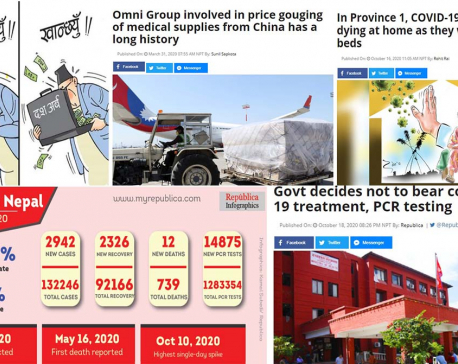
As Oli government limits its role to counting deaths during the greatest public health crisis, people are dying at an alarming rate
Experts say the government has decided to shred the constitution ... Read More...

Republica Morning Brief: Oct 12
As COVID-19 cases are making new records every day, the government on Sunday “hinted” at imposing lockdown to curb the... Read More...
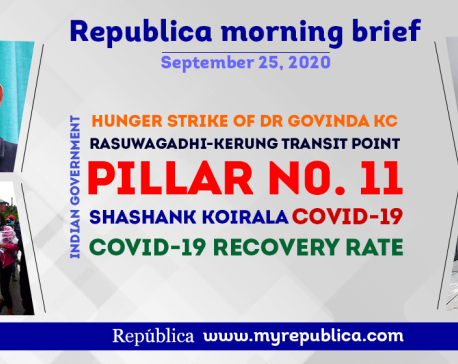
Republica Morning Brief: Sept 25
Pillar number 11 erected in the Lalung area in Namkha Rural Municipality-6 of Humla along the Nepal-China border which was... Read More...





Just In
- Nepalgunj ICP handed over to Nepal, to come into operation from May 8
- Nepal to gift two elephants to Qatar during Emir's state visit
- NUP Chair Shrestha: Resham Chaudhary, convicted in Tikapur murder case, ineligible for party membership
- Dr Ram Kantha Makaju Shrestha: A visionary leader transforming healthcare in Nepal
- Let us present practical projects, not 'wish list': PM Dahal
- President Paudel requests Emir of Qatar to initiate release of Bipin Joshi
- Emir of Qatar and President Paudel hold discussions at Sheetal Niwas
- Devi Khadka: The champion of sexual violence victims



_20240423174443.jpg)





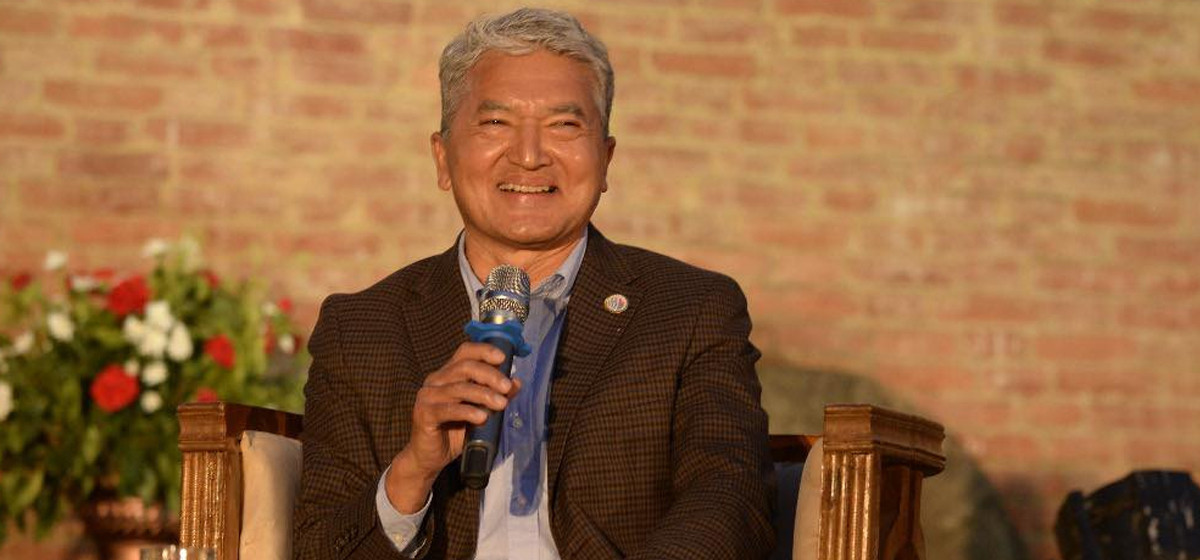
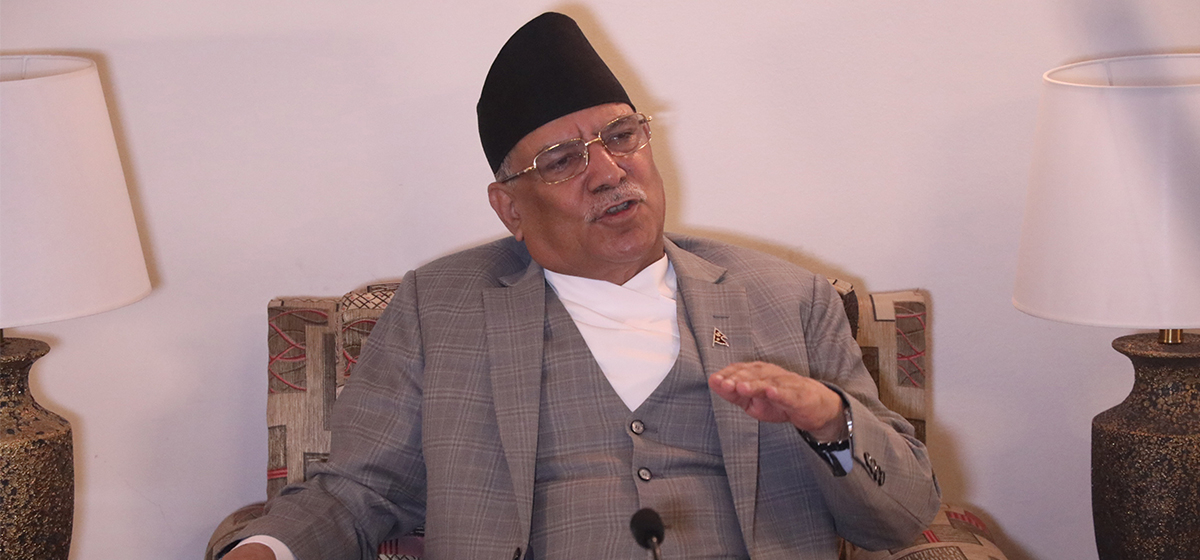

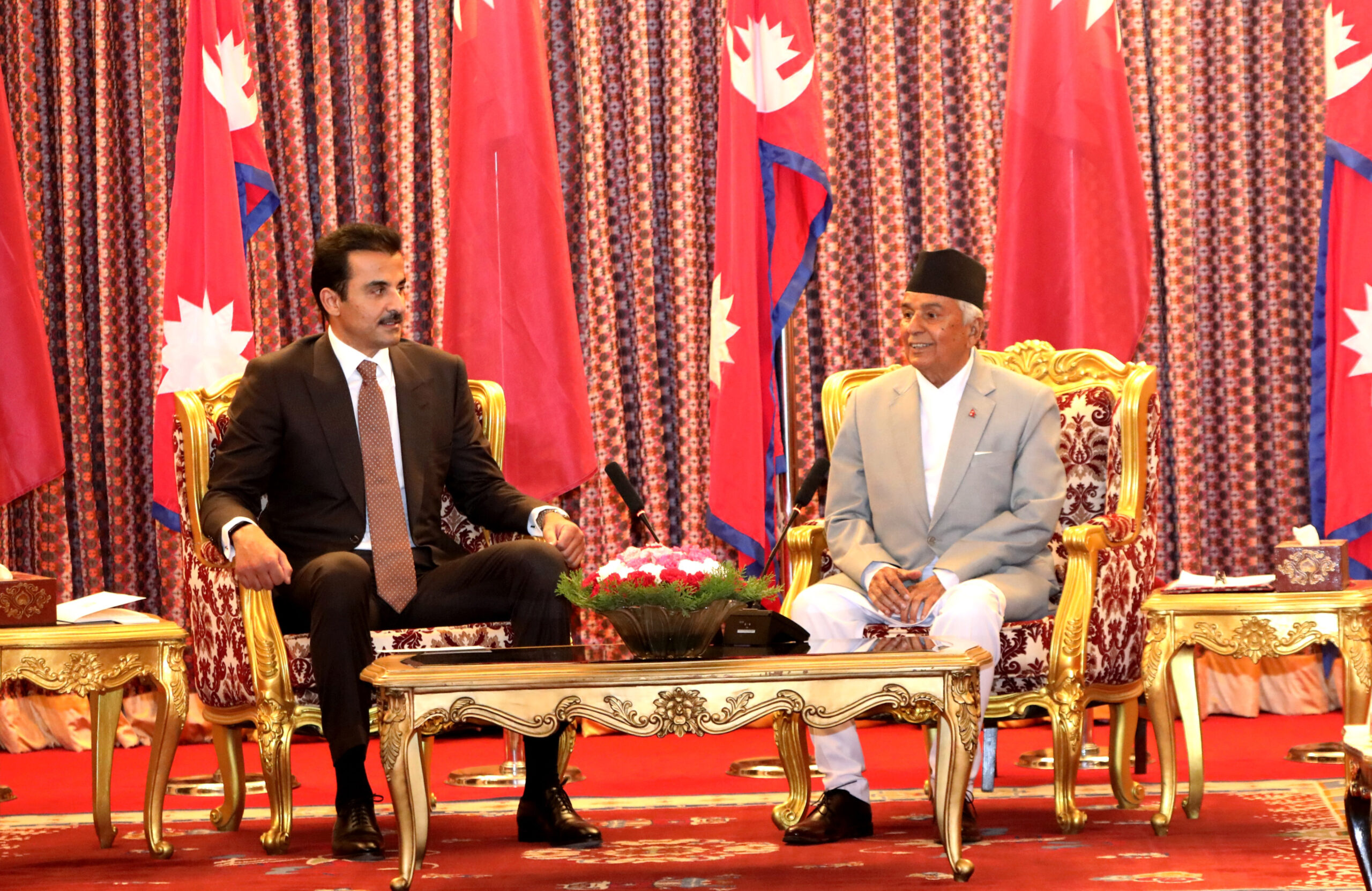
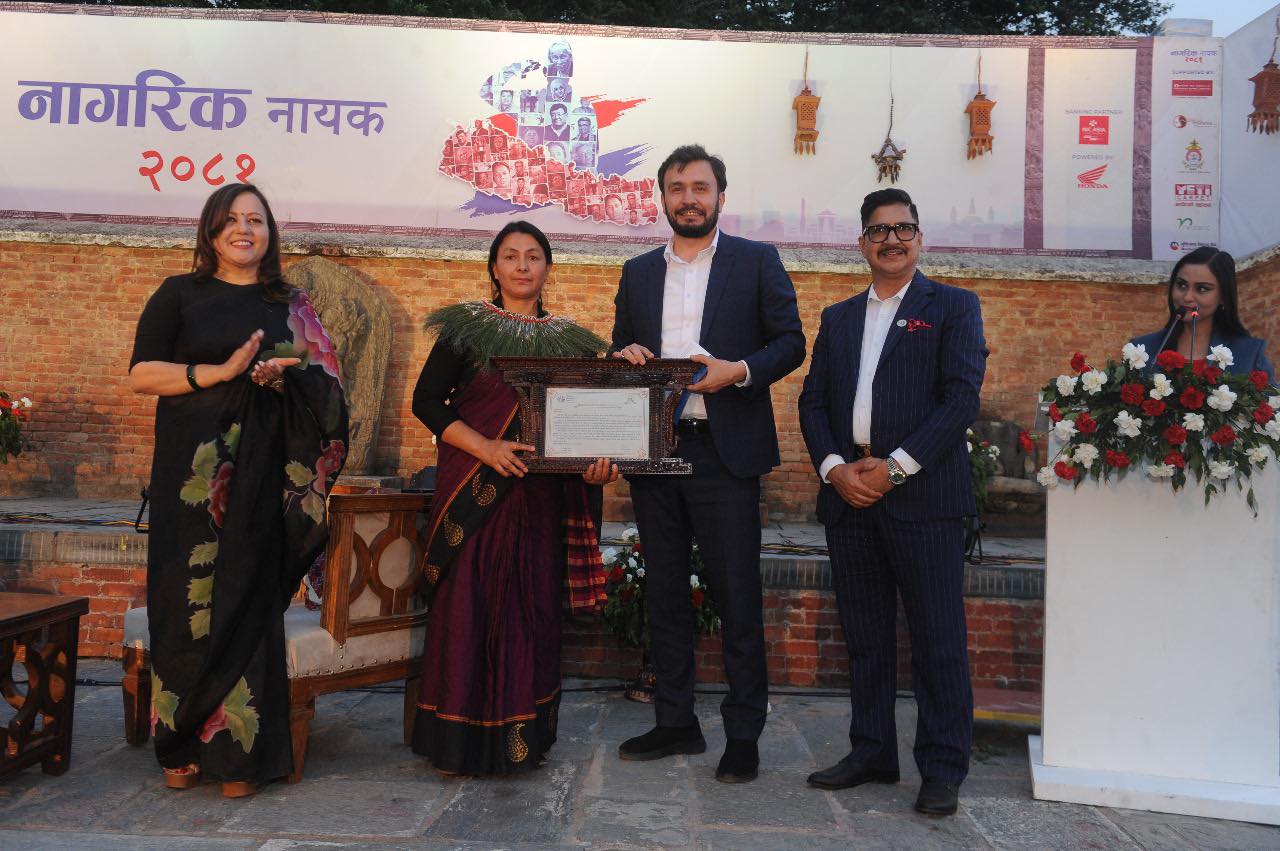
Leave A Comment